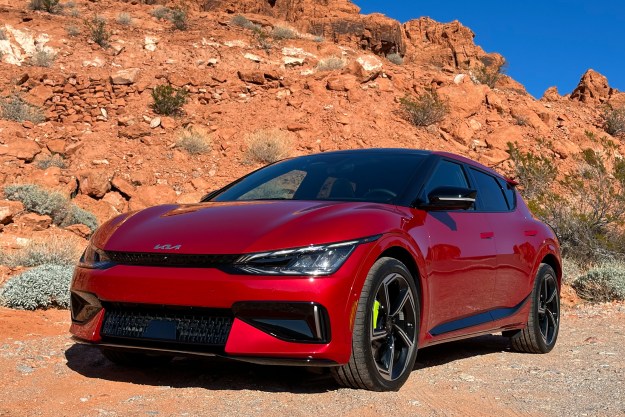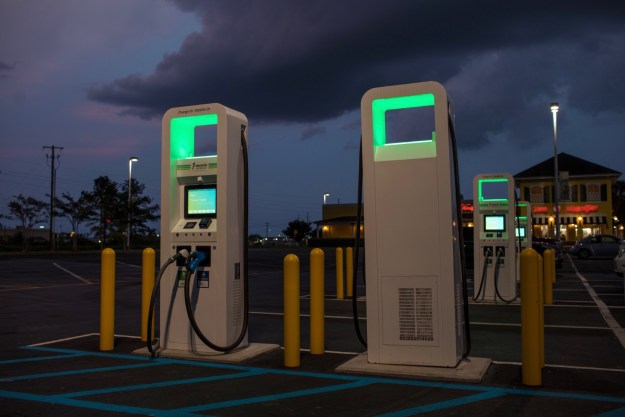
Restoring and upgrading old Porsche 911s has become a cottage industry, but no one does it like Voitures Extravert. The Dutch company was founded to keep these classic sports cars on the road even if internal combustion is one day banned from European city centers. So Voitures Extravert takes out the stock flat-six engines, and replaces them with electric powertrains. It plans to churn them out at an accelerated rate in 2019.
The company calls its electric 911 the Quintessenza, and it’s available in two configurations. The Quintessenza SE is styled to look like a 1960s 911, while the Quintessenza TE borrows styling features from later 1980s models. Voitures Extravert uses original 911s that would be uneconomic to restore otherwise; its car-enthusiast bosses don’t want to rip up pristine cars.
Both Quintessenza models sport a 58-kilowatt-hour pack that provides a claimed range of 400 kilometers (250 miles). A fast-charging option will be available for 2019, allowing for approximately 61 miles of range to be added in 15 minutes, according to the company.
Voitures Extravert also claims a zero to 100 kph (zero to 62 mph) time of less than 6.0 seconds, and a top speed of 200 kph (124 mph). That isn’t lightning fast by modern standards, but it’s appropriate for the era these cars hail from, and pretty good considering the added weight of the batteries. The company quoted torque output at 672 pound-feet, but did not list horsepower.
Speaking of batteries, Voitures Extravert distributes the cells throughout the car, allowing for a claimed 50/50 front/rear weight distribution. That’s a major achievement for a 911, as these cars are very tail-heavy in stock form due to their rear-mounted engines. Voitures Extravert also fits its cars with upgraded brakes and adjustable dampers, as well as convenience items like power steering and air conditioning.
One of Voitures Extravert’s electric 911s will set you back 300,000 euros, or about $337,000 at current exchange rates. That price does include the cost of the donor car, which Voitures Extravert sources. The finished product comes with a five-year/62,000-mile warranty.
Voitures Extravert plans to ramp up production in 2019. In 2018, it said it only planned to build five cars, but says it plans to build 36 this year. That may not seem like a lot, but it’s pretty good for a highly customized, hand-built car. Voitures Extravert co-founder Jurgen Moerman said that volume is “unheard of” in the classic-car restoration industry. The company isn’t alone in its effort to electrify classics: companies like Austria’s Kreisel Electric specializes in electric-car conversions and, if you’re prepared for a little trial and error, it’s even something you can do at home.
Updated on April 11, 2019: Added details on 2019 model.
Editors' Recommendations
- Porsche’s most powerful production car is an EV
- Apple’s car project has apparently conked out
- The fastest electric cars, ranked by 0-60 mph acceleration
- The cheapest electric cars you can buy
- What are the different types of electric car chargers?


